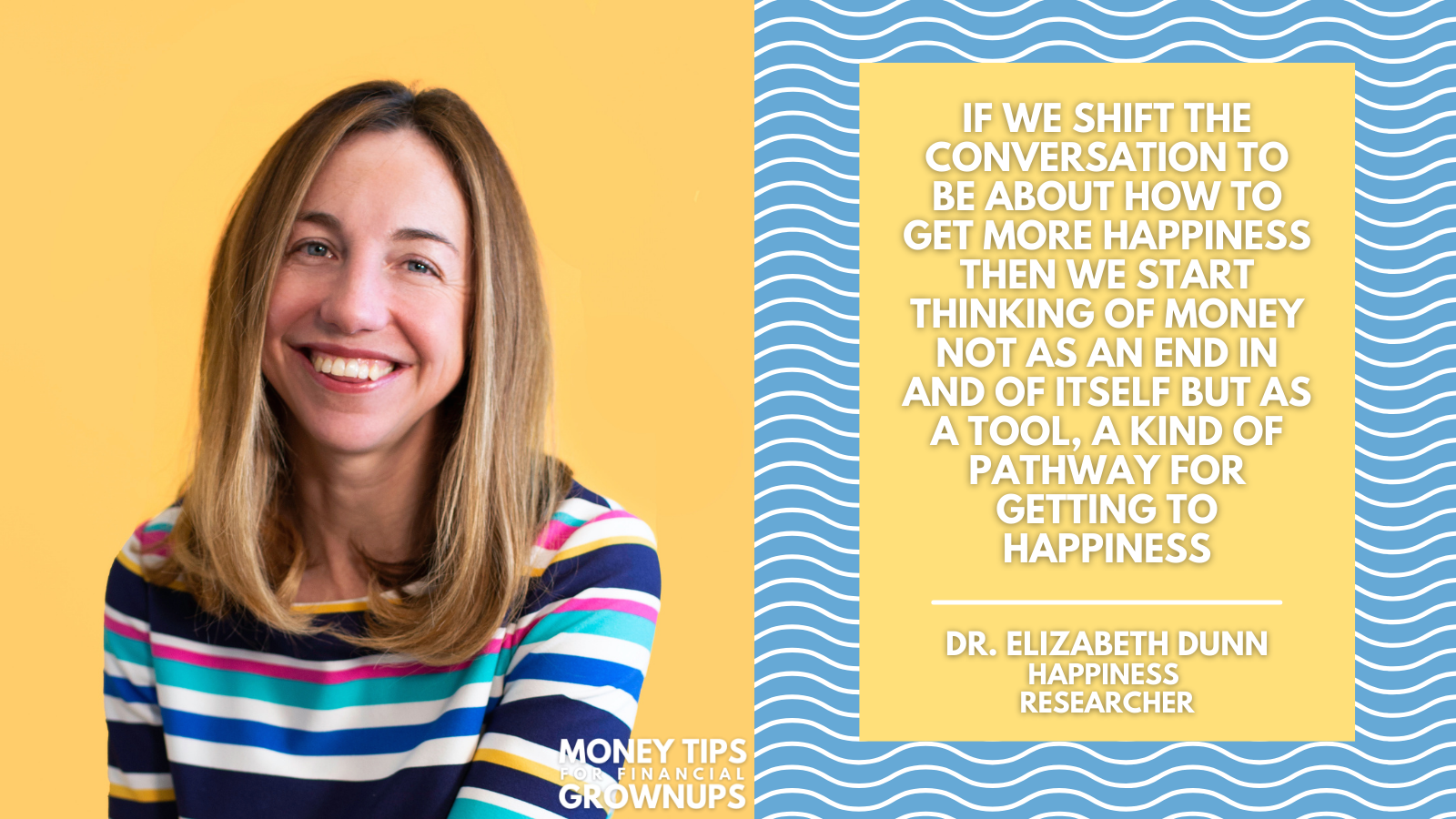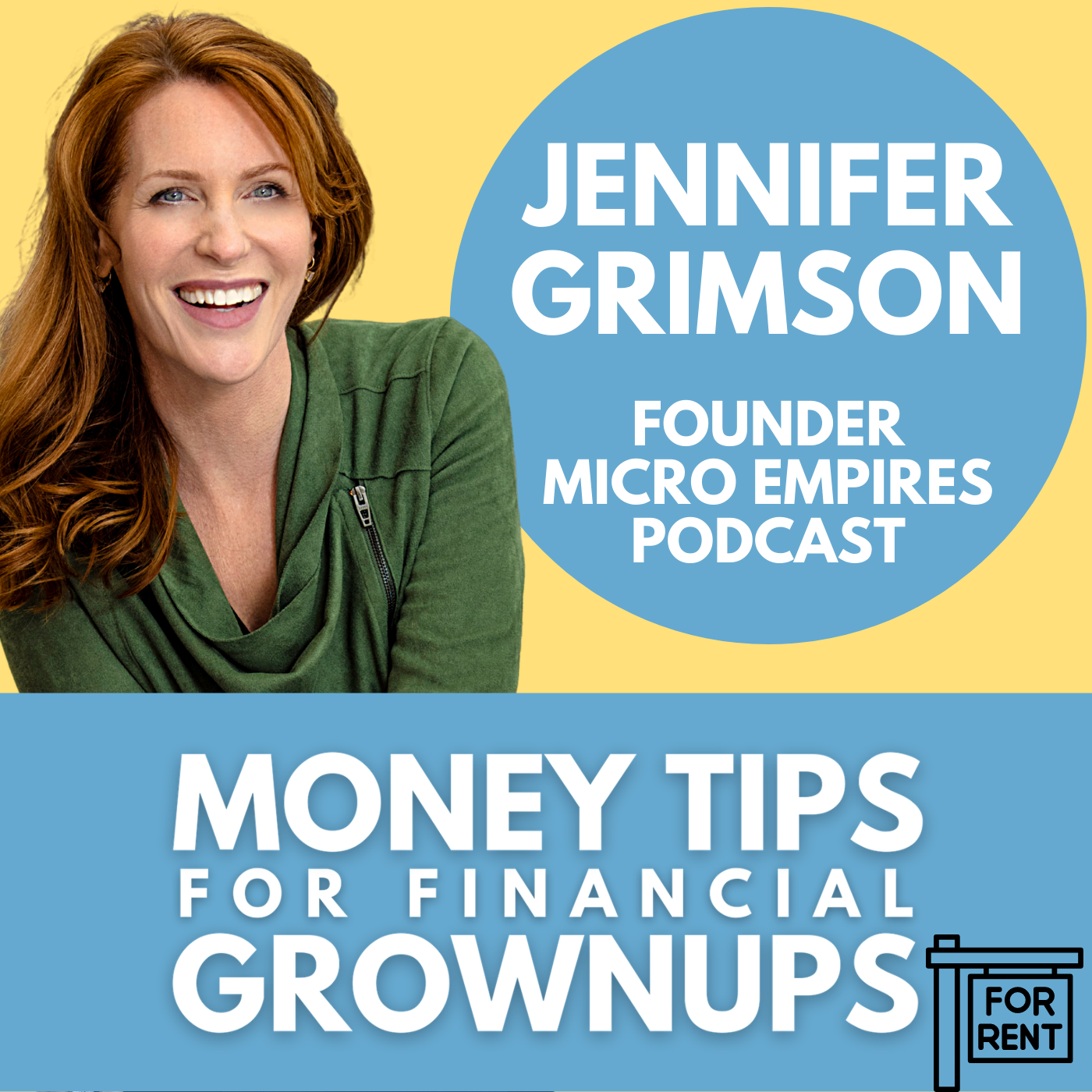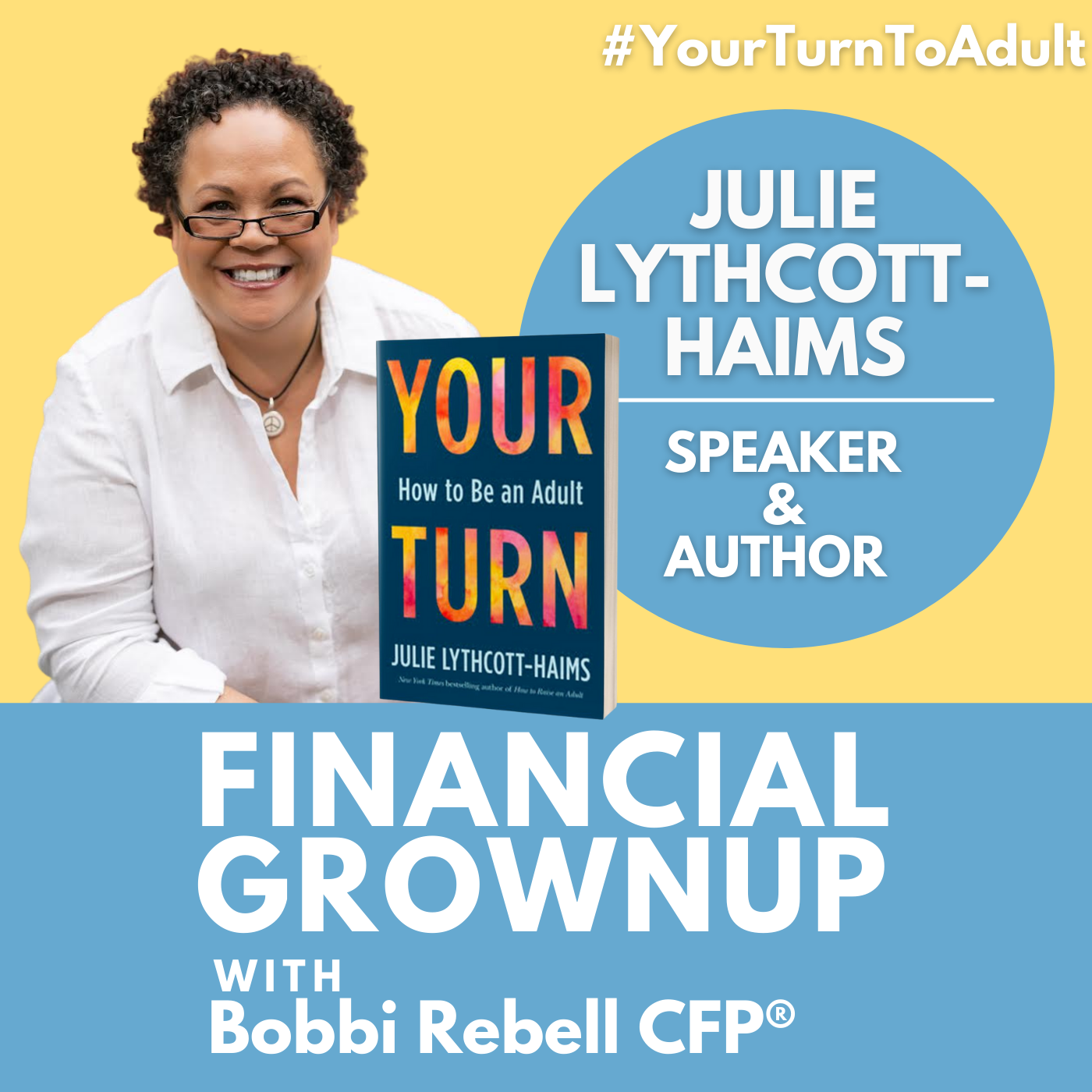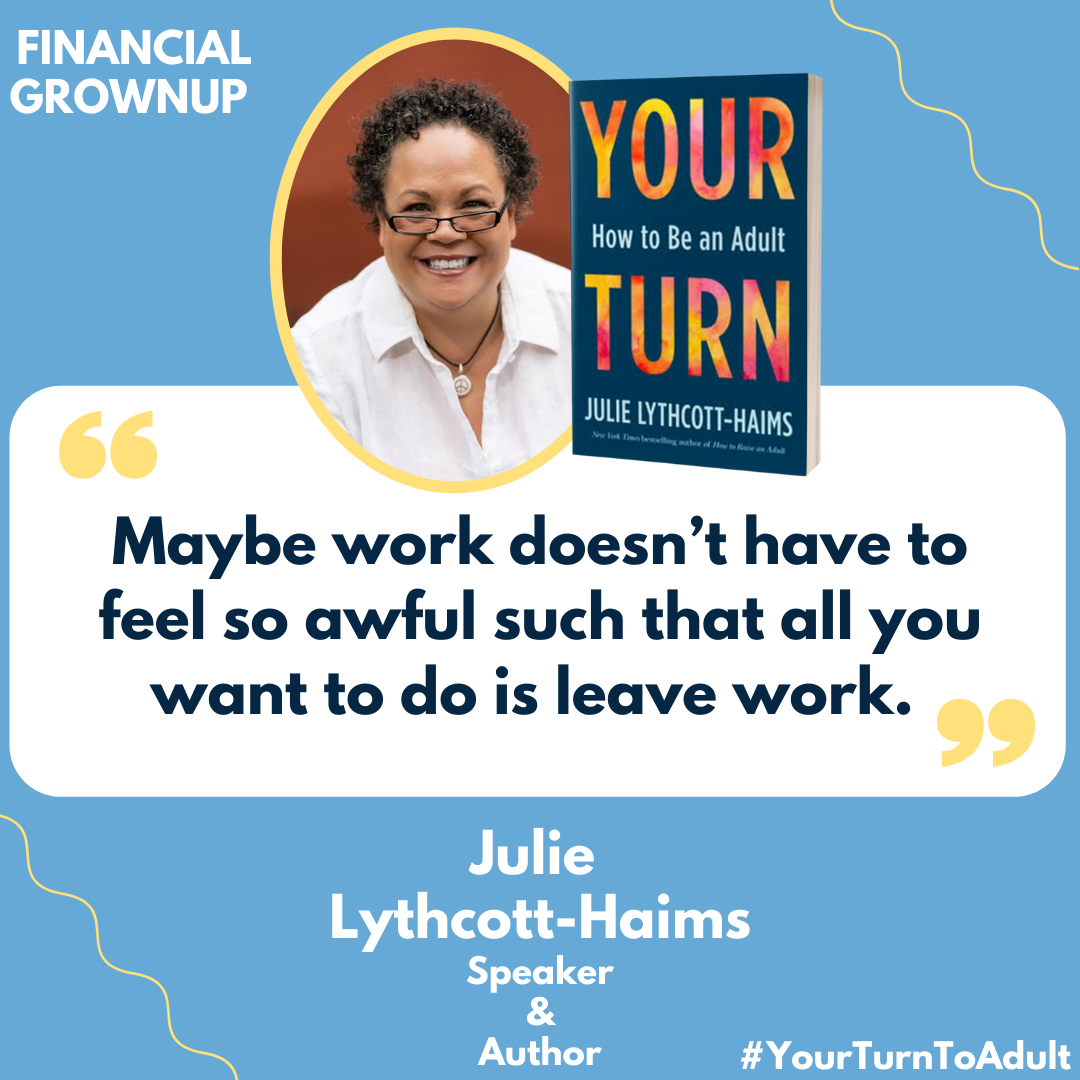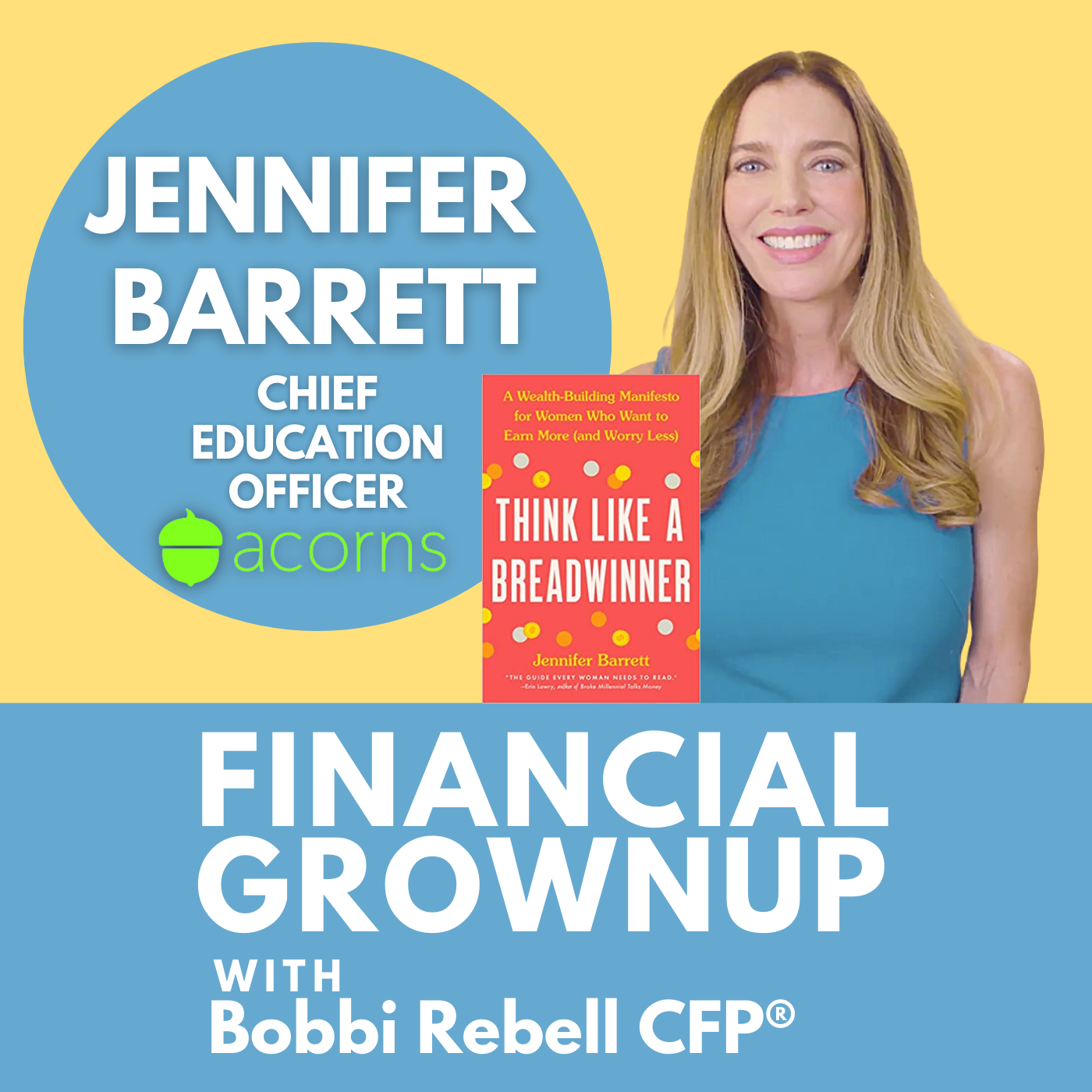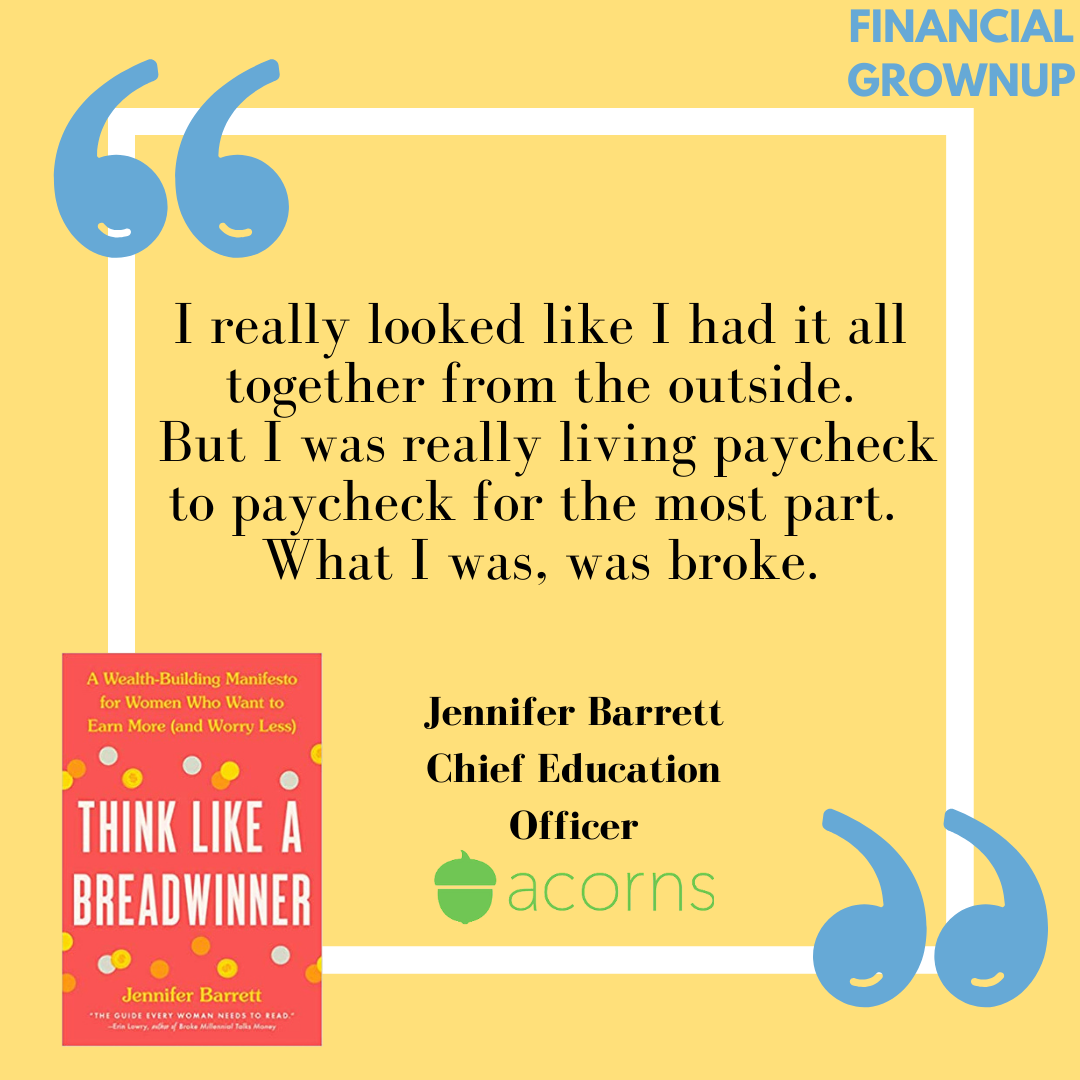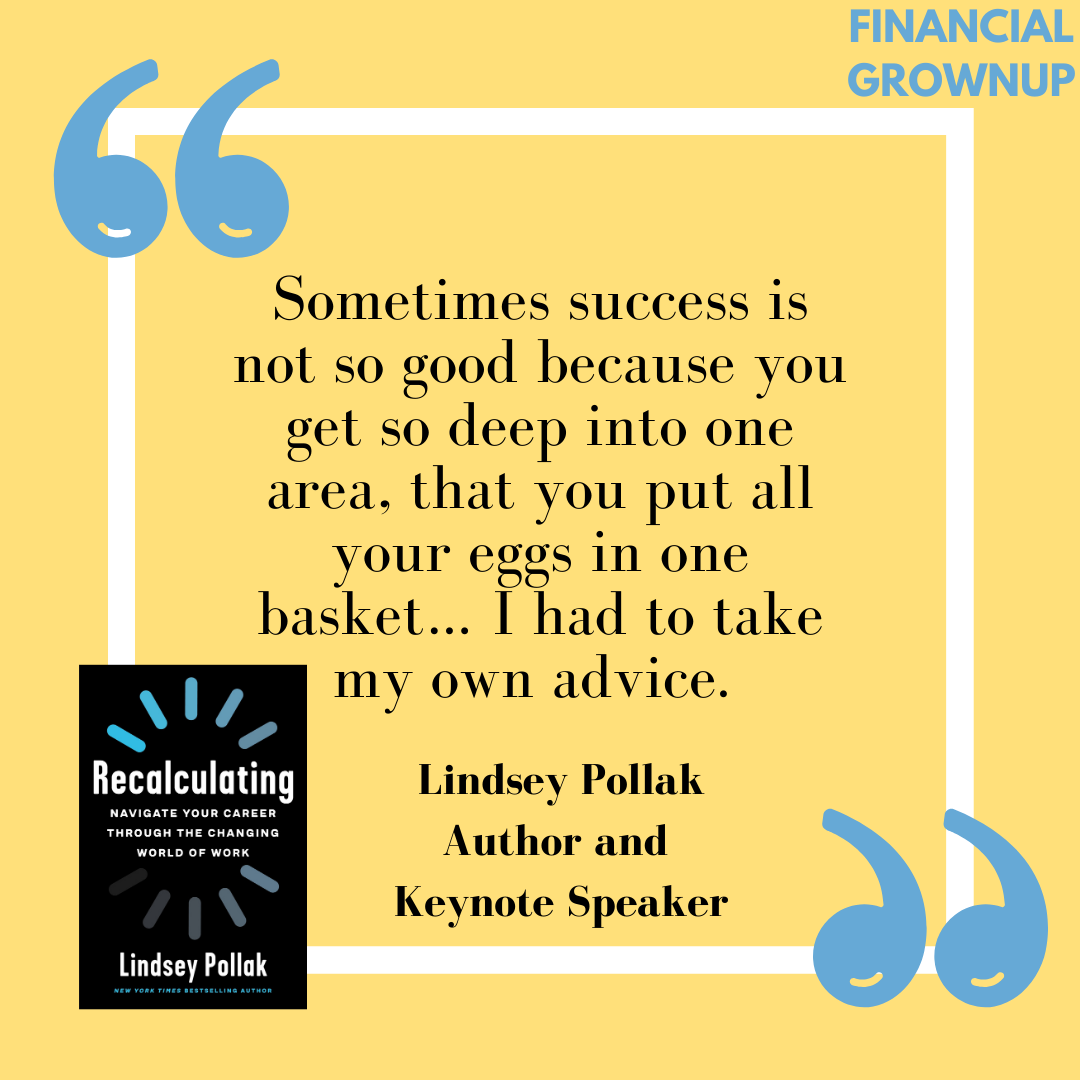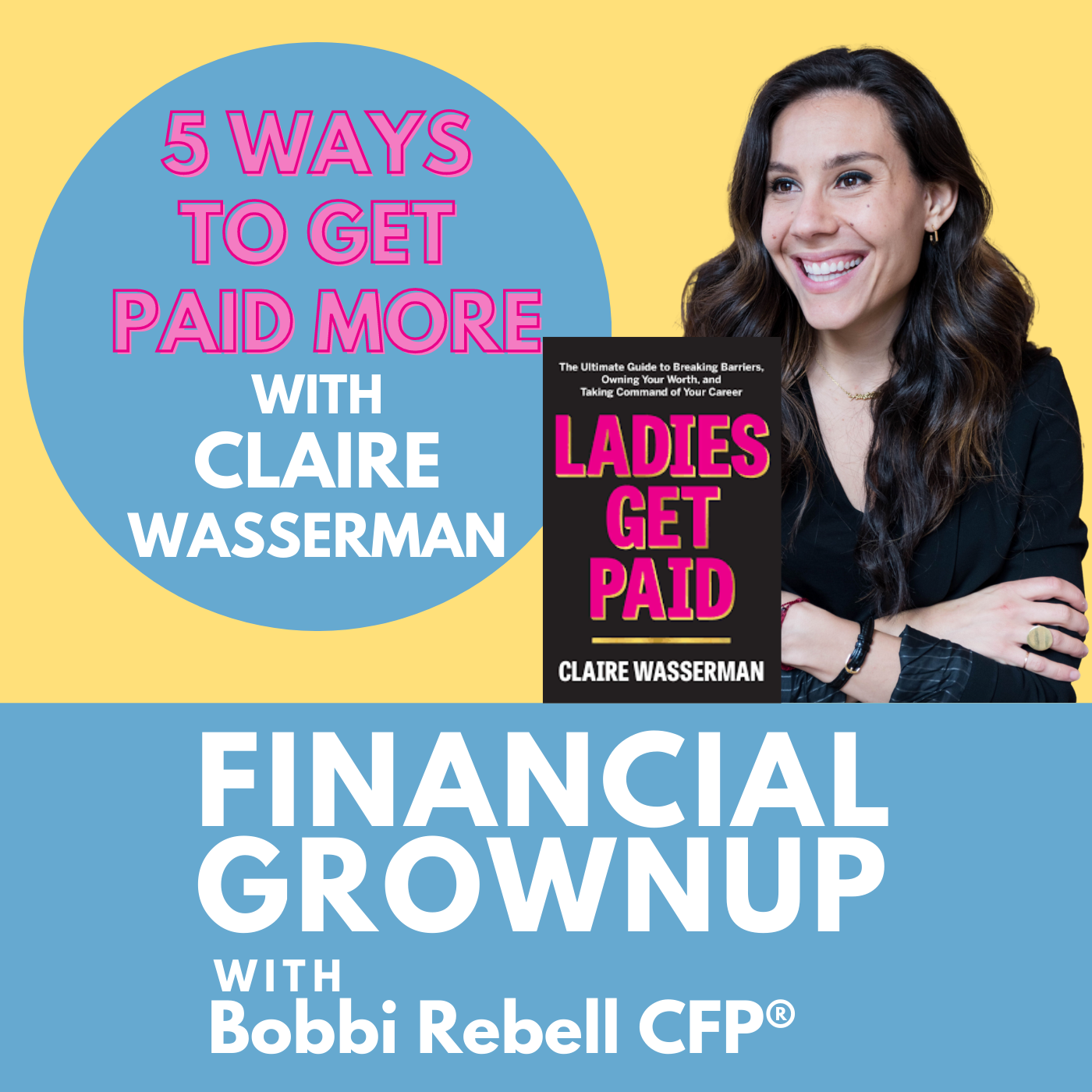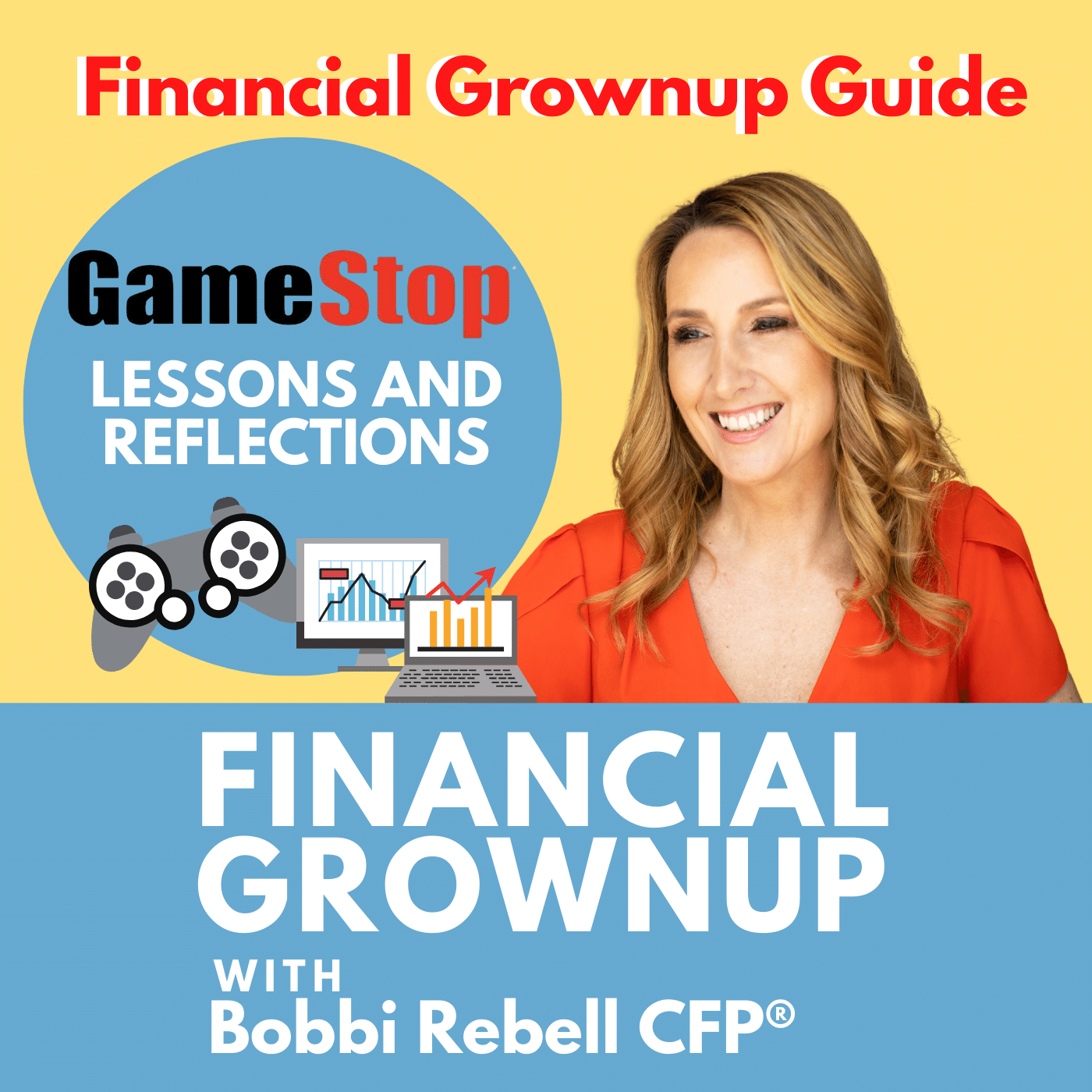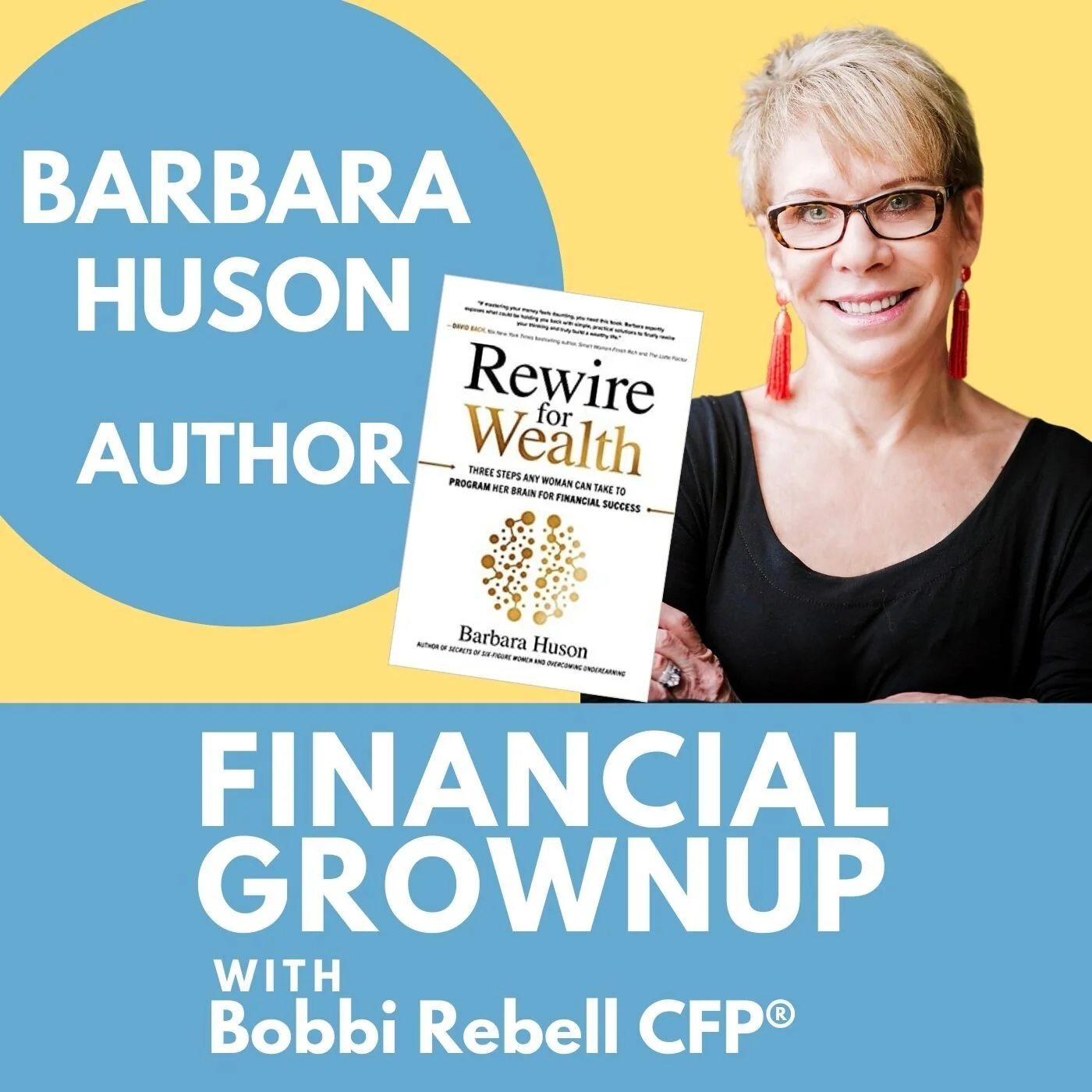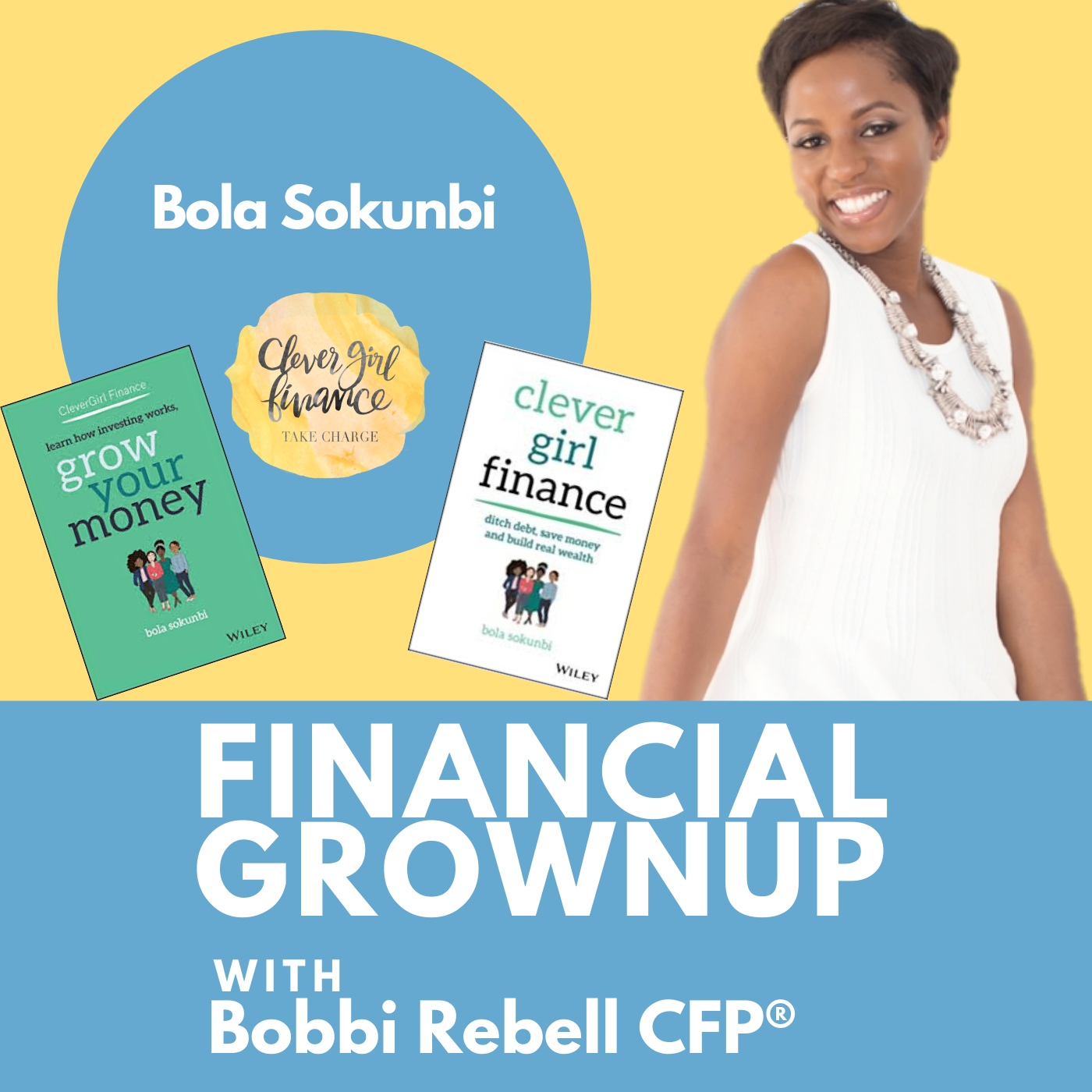Do you track your “Happy Spends” against your “Sad Spends”? Dr. Elizabeth Dunn of Happy Money will have you doing that and more with her money mental wellness tips. Don’t you feel better already?
Dr. Elizabeth Dunn’s 5 Money Tips to achieve financial wellness
Dr. Elizabeth Dunn:
I spend my day-to-day work life thinking about what makes people happy and how we can make people happier. In particular, I've been really interested in how we can harness money as a tool to increase our happiness. I think the sort of overarching idea that I've been arguing throughout my career is that how much money we have actually matters less than what it is we do with it. So making more careful choices around not just how we invest our money, how we save our money-- which we think so much about-- but also how we spend our money. Can we spend it in ways that genuinely make us happier, rather than just sort of squandering it on the things that daily life tempts us with? All the things we see in sort of advertisements, things we see other people buying. Instead, can we chart our own path and find the kinds of purchases that really fill us with happiness.
Bobbi Rebell:
Which is such a great concept and one that I should mention you do cover in your book, Happy Money: The Science of Happier Spending. All right, let's get to your five tips for financial wellness. Now some of these might sound familiar, but the way that you present them is going to really resonate I think, with our audience, because you also have the data to back them up and I think that's going to really motivate a lot of us to put these into action in our lives. Okay. The first one is normalize talking about money, which we hear a lot, but you've got a different spin on it.
Dr. Elizabeth Dunn:
Right. This really comes from our research at Happy Money where we've seen that people in debt especially really want a chance to hear from other people that have been through that journey too. They want to know how did you get through this? How did you pay off your debt? What challenges did you overcome? We're used to talking about money maybe on the brighter side of investments and savings and so forth, but I think it's really important that we start sharing our financial lows along with our financial highs just to normalize talking about money and just taking away some of the stigma that surrounds debt. We really encourage people to talk about and think about what it is that a rich life means to them. So I would argue that rich really is not about what's in your bank account. It's about what makes you happy and fulfilled in meaningful and sustainable ways. One thing we see is that over and above how much income people earn, it really matters how they think about money.
Bobbi Rebell:
Your second money tip is to treat money as a tool, but again, you are reframing the conversation here.
Dr. Elizabeth Dunn:
Right. So I think very often, people treat money as an end in itself. So much of financial planning, for example, surrounds how to get more money. So if we shift the conversation to be about how to get more happiness, then we start thinking of money not as an end in itself, but as a tool, kind of pathway for getting to happiness. We do know that people who have more money tend to be happier than those who have less, but this is mainly because those people with more money tend to be more able to meet their expenses and stay out of debt. In reality, the amount of money that you have really matters less than what you do with it and the key here is figuring out how to use money as a tool to boost your mental health and happiness.
Dr. Elizabeth Dunn:
This holds true whether you have a little money or a lot of money. In some of our recent data, we're seeing just how consistently these ideas hold up across the whole spectrum of income. For example, we know from research that people tend to get more satisfaction from buying time. For example, buying some help with childcare or a meal delivery service can really pay dividends in terms of life satisfaction. And from our latest data from Happy Money, we're actually seeing that this relationship holds true again, even for people who are living paycheck to paycheck, kind of struggling to make ends meet.
Dr. Elizabeth Dunn:
It's quite a consistent principal and even more consistent, we see that people who give, who use their money to benefit others, tend to experience greater happiness. This is what we see, remarkably, even for people below the poverty line. This relationship holds true all the way across the income spectrum. At the end of the day, that's really why we created Happy Money, which is to help people use their money in ways that support their wellbeing and happiness and also allow them to build healthier and more mindful habits more broadly around their finances.
Bobbi Rebell:
And it's interesting because some of the examples you just gave like ordering in dinner are things that we generally think of as splurges and things that we can cut out when we're trying to get control of our budgets, but we shouldn't maybe make those assumptions.
Dr. Elizabeth Dunn:
That's exactly right. In our research, we see that many people do experience guilt around using their money to buy themselves some time. Just give yourself a break from that guilt. What we see in our research is that buying time really is a good way to promote your happiness and if you're experiencing a lot of stress, a lot of time stress... Buying time can help buffer your overall wellbeing from those feelings of time stress that can otherwise chip away at your mental health.
Bobbi Rebell:
How has this changed during the pandemic? Do you have any data on that? I'm curious.
Dr. Elizabeth Dunn:
Yeah. We're just beginning to fully explore this question of how these principles might've been altered through the pandemic. But I think a particularly interesting one to focus on at this stage of the pandemic is giving, because we know that many people did not give as much money as they usually would to charity during the pandemic. Many charities are really hurting right now, and so as we kind of see the light at the end of the tunnel and maybe experience some gratitude over having made it this far and still being alive, still kind of being okay. I think this is a wonderful time to pay it forward.
Bobbi Rebell:
Okay. Let's move on to the third one. I think this is my favorite one. Track your happy spends versus sad spends.
Dr. Elizabeth Dunn:
Yeah. So I always tell people to track what you spend and how it makes you feel. So people are used to tracking their spending to try to restrain their spending or know how much they've got, but I say add on how it makes you feel so you can actually decide what's worth it to you and what's not. So really pay attention to how these purchases affect your mood and then you can start to identify what I call happy spends, these spends that really make you happy. And sad spends, maybe things that used to make you happy but aren't really paying off in terms of your happiness anymore.
Dr. Elizabeth Dunn:
This is going to help you ask yourself what actually brings you real joy and what do you regret by the next day? I would argue that when you shift your spending toward what makes you truly happy... That might be paying off debt, or savoring a treat, helping a friend donating to charity. That can enable you to make better, happier decisions around your own wellbeing and it's also a great opportunity to start thinking about investing in your future self. What are the purchases that make you happy when you first acquire them, but also still continue to provide happiness dividends going forward. I think that's a really fascinating issue. Helping people gain better self insight into what makes them happy starts with just paying attention in the moment to what's providing you joy and what's not.
Bobbi Rebell:
I was so glad to see this next one on the list because it really resonates with so many of us coming out of this pandemic. Start small and celebrate along the way with an emphasis for me on celebrate along the way, because we really don't know what's going to happen.
Dr. Elizabeth Dunn:
That's right. I mean, this experience of the past year has really made me appreciate the value of just celebrating what's good in the moment. So, I recommend when people are tackling a big financial challenge or big life challenge, start with small manageable changes. Achievable changes. And then do take the time to celebrate those little milestones along the way. So it isn't necessarily about just achieving your final goal and that's the only time you should celebrate. Celebrate each piece of it. So break your big goals into more bite sized pieces and these small steps are going to be a lot easier to form into sticky sorts of habits. Just to give some examples, you could start with little changes like saving $10 a week, or maybe giving $15 to a charitable organization that needs your support, or try putting an extra $50 a month toward your credit card debt.
Dr. Elizabeth Dunn:
These are potentially more achievable changes that over time can actually have a really big impact on your overall happiness. So what we've seen in our data at Happy Money is that even building up a little bit of savings can go a long way in terms of people's life satisfaction. So we see that people with just $400 in emergency savings reported over 13% higher levels of life satisfaction compared to people who didn't have that cushion.
Bobbi Rebell:
Well, you're removing that anxiety, right?
Dr. Elizabeth Dunn:
I think that's a huge part of it. So we see that when people have savings, it kind of acts as this cushion that protects them from some of the shocks of unexpected events in daily life and can also just reassure people that they're going to be a little bit insulated. I think that's one of the big lessons for me from the pandemic because we just don't know what the future holds. Save up some money now so you're ready for whatever surprises the future might have in store.
Bobbi Rebell:
And this last one, I think, is just so essential and I hope that people take the time and really take it seriously. And that is to take the time to deal with your feelings around money... Because we often get so caught up in life's day-to-day, we never stop and kind of examine how we're approaching money.
Dr. Elizabeth Dunn:
That's right. And I think this is probably the most important tip. That we focus so much on the sort of objective financial challenges surrounding money itself but we have to also deal with the feelings that are hovering around those challenges. So thinking about this, we decided last year to introduce a new money, mindfulness and stress reduction program that we call Peace. Like peace and love. This free course is really neat because it incorporates cognitive behavioral therapy and psychology to help people understand and reduce the impact that financial stress is having on their lives. The fact that it's completely free was super important to me. This is something we are giving away to just help people deal with the financial stress that the past year has created.
Dr. Elizabeth Dunn:
What we did was really to try to think about how could busy people fit this into their lives? As somebody who's got a full-time job and a kid I thought, 'Could I make this work even for me?' Each exercise is really broken down into these small digestible bites and everything is personalized to the individual and really designed to build skills for addressing stress levels. And going beyond just combating stress, we also wanted to think about the positive sides. So we've got a whole week that's devoted to just helping people promote more positive thoughts and actions. To learn how to amplify their positive emotions and get more joy out of the tiny pleasures of daily life like sitting in the sunshine or eating a piece of chocolate.
Follow Dr. Elizabeth Dunn!
Instagram - @happymoney
Twitter - @DunnHappyLab
Website - https://happymoney.com/company/
Happy Money’s FREE course - Peace - https://peace.happymoney.com/peace
Follow Bobbi!
Instagram - @bobbirebell1
Twitter- @bobbirebell
LinkedIn- Bobbi Rebell
Website- http://www.bobbirebell.com
Did you enjoy the show? We would love your support!
Leave a review on Apple Podcasts or wherever you listen to podcasts. We love reading what our listeners think of the show!
Subscribe to the podcast, so you never miss an episode.
Share the podcast with your family, friends, and co-workers.
Tag me on Instagram @bobbirebell1 and you’ll automatically be entered to win books by our favorite guests and merch from our Grownup Gear shop.
Full Transcript:
Bobbi Rebell:
I hope you guys are all celebrating some big adulting milestones this season, and you know what? Finding the perfect gift for those celebrations can be kind of tough. I have the solution over at grownupgear.com. We have adorable hats, totes mugs, pillows, tees, and seriously the most cozy and comfortable sweatshirts. They're all on grownupgear.com and all at affordable prices. We even now have digital gift certificates if you can't decide. Use code grown-up for 15% off your first order. Buying from our small business helps to support this free podcast. And you know what? We really appreciate it. Thanks, guys.
Dr. Elizabeth Dunn:
In our research, we see that people, many people do experience guilt around using their money to buy themselves some time. Just give yourself a break from that guilt. What we see in our research is that buying time really is a good way to promote your happiness and if you're experiencing a lot of stress-- a lot of time stress-- buying time can help buffer your overall wellbeing from those feelings of time stress that can otherwise chip away at your mental health.
Bobbi Rebell:
You're listening to Money Tips for Financial Grownups with me, certified financial planner, Bobbi Rebell, author of How to Be a Financial Grownup. And you know what? When it comes to money being grown up is hard, but together we got this.
Bobbi Rebell:
Hey friends! I hope everyone is having fun this summer and feeling healthy and most of all, feeling happier these days. A lot of things affect our moods. I know for me, I always feel better when the weather is good and there is scientific evidence that for some people, including me, sunshine and warmth really does have an impact on our moods. There's also evidence that what's going on with our money can have a measurable impact, a scientifically measurable impact on our mood and yes, our happiness. So, okay. For most of us, it doesn't take a scientific survey or research or whatever to tell us that if we're worried about money, we're not happy. But stick with me friends, because if we understand the science, we can then take it to the next level and implement real strategies to boost our financial wellness.
Bobbi Rebell:
So for example, a lot of the time, things like meal delivery plans are framed as something that maybe we should feel a little guilty about. We see it as a splurge, a luxury, and certainly discretionary when we're having budgeting discussions. But here's the thing. Apparently, things that buy us time are scientifically proven to be good for our mental health and could actually be one of the best uses of our money.
Bobbi Rebell:
I found the perfect guest to tell us more about all of that and also to teach us how we can incorporate good money habits that lead to happiness into our lives. Dr. Elizabeth Dunn is a professor in the Department of Psychology at the University of British Columbia and the Chief Science Officer at Happy Money, a Los Angeles based FinTech company. Now Dunn is also the author of Happy Money: The Science of Happier Spending which she co authored with Michael Norton of Harvard Business School. Dr. Dunn conducts experimental research on happiness, exploring how people can optimize their use of time, money and technology to promote well-being. Her TED 2019 Talk on generosity and happiness, has been viewed over 3 million times and was selected by TED as one of the top 10 Talks of that year 2019. She is amazing and we are in for a treat. Here is Dr. Elizabeth Dunn. Dr. Elizabeth Dunn, you are a financial grownup. I'm so happy to have you on the podcast.
Dr. Elizabeth Dunn:
I'm so happy to be here. Thanks for having me.
Bobbi Rebell:
So, okay. Before we get to... You're going to be talking about five tips for financial wellness and improving our mental health, especially as it relates to money. I have to ask you, you call yourself a happiness researcher. Tell us about that.
Dr. Elizabeth Dunn:
Well, I spend my day-to-day work life thinking about what makes people happy and how we can make people happier. In particular, I've been really interested in how we can harness money as a tool to increase our happiness. I think the sort of overarching idea that I've been arguing throughout my career is that how much money we have actually matters less than what it is we do with it. So making more careful choices around not just how we invest our money, how we save our money-- which we think so much about-- but also how we spend our money. Can we spend it in ways that genuinely make us happier, rather than just sort of squandering it on the things that daily life tempts us with? All the things we see in sort of advertisements, things we see other people buying. Instead, can we chart our own path and find the kinds of purchases that really fill us with happiness.
Bobbi Rebell:
Which is such a great concept and one that I should mention you do cover in your book, Happy Money: The Science of Happier Spending. All right, let's get to your five tips for financial wellness. Now some of these might sound familiar, but the way that you present them is going to really resonate I think, with our audience, because you also have the data to back them up and I think that's going to really motivate a lot of us to put these into action in our lives. Okay. The first one is normalize talking about money, which we hear a lot, but you've got a different spin on it.
Dr. Elizabeth Dunn:
Right. This really comes from our research at Happy Money where we've seen that people in debt especially really want a chance to hear from other people that have been through that journey too. They want to know how did you get through this? How did you pay off your debt? What challenges did you overcome? We're used to talking about money maybe on the brighter side of investments and savings and so forth, but I think it's really important that we start sharing our financial lows along with our financial highs just to normalize talking about money and just taking away some of the stigma that surrounds debt. We really encourage people to talk about and think about what it is that a rich life means to them. So I would argue that rich really is not about what's in your bank account. It's about what makes you happy and fulfilled in meaningful and sustainable ways. One thing we see is that over and above how much income people earn, it really matters how they think about money.
Bobbi Rebell:
Your second money tip is to treat money as a tool, but again, you are reframing the conversation here.
Dr. Elizabeth Dunn:
Right. So I think very often, people treat money as an end in itself. So much of financial planning, for example, surrounds how to get more money. So if we shift the conversation to be about how to get more happiness, then we start thinking of money not as an end in itself, but as a tool, kind of pathway for getting to happiness. We do know that people who have more money tend to be happier than those who have less, but this is mainly because those people with more money tend to be more able to meet their expenses and stay out of debt. In reality, the amount of money that you have really matters less than what you do with it and the key here is figuring out how to use money as a tool to boost your mental health and happiness.
Dr. Elizabeth Dunn:
This holds true whether you have a little money or a lot of money. In some of our recent data, we're seeing just how consistently these ideas hold up across the whole spectrum of income. For example, we know from research that people tend to get more satisfaction from buying time. For example, buying some help with childcare or a meal delivery service can really pay dividends in terms of life satisfaction. And from our latest data from Happy Money, we're actually seeing that this relationship holds true again, even for people who are living paycheck to paycheck, kind of struggling to make ends meet.
Dr. Elizabeth Dunn:
It's quite a consistent principal and even more consistent, we see that people who give, who use their money to benefit others, tend to experience greater happiness. This is what we see, remarkably, even for people below the poverty line. This relationship holds true all the way across the income spectrum. At the end of the day, that's really why we created Happy Money, which is to help people use their money in ways that support their wellbeing and happiness and also allow them to build healthier and more mindful habits more broadly around their finances.
Bobbi Rebell:
And it's interesting because some of the examples you just gave like ordering in dinner are things that we generally think of as splurges and things that we can cut out when we're trying to get control of our budgets, but we shouldn't maybe make those assumptions.
Dr. Elizabeth Dunn:
That's exactly right. In our research, we see that many people do experience guilt around using their money to buy themselves some time. Just give yourself a break from that guilt. What we see in our research is that buying time really is a good way to promote your happiness and if you're experiencing a lot of stress, a lot of time stress... Buying time can help buffer your overall wellbeing from those feelings of time stress that can otherwise chip away at your mental health.
Bobbi Rebell:
How has this changed during the pandemic? Do you have any data on that? I'm curious.
Dr. Elizabeth Dunn:
Yeah. We're just beginning to fully explore this question of how these principles might've been altered through the pandemic. But I think a particularly interesting one to focus on at this stage of the pandemic is giving, because we know that many people did not give as much money as they usually would to charity during the pandemic. Many charities are really hurting right now, and so as we kind of see the light at the end of the tunnel and maybe experience some gratitude over having made it this far and still being alive, still kind of being okay. I think this is a wonderful time to pay it forward.
Bobbi Rebell:
Okay. Let's move on to the third one. I think this is my favorite one. Track your happy spends versus sad spends.
Dr. Elizabeth Dunn:
Yeah. So I always tell people to track what you spend and how it makes you feel. So people are used to tracking their spending to try to restrain their spending or know how much they've got, but I say add on how it makes you feel so you can actually decide what's worth it to you and what's not. So really pay attention to how these purchases affect your mood and then you can start to identify what I call happy spends, these spends that really make you happy. And sad spends, maybe things that used to make you happy but aren't really paying off in terms of your happiness anymore.
Dr. Elizabeth Dunn:
This is going to help you ask yourself what actually brings you real joy and what do you regret by the next day? I would argue that when you shift your spending toward what makes you truly happy... That might be paying off debt, or savoring a treat, helping a friend donating to charity. That can enable you to make better, happier decisions around your own wellbeing and it's also a great opportunity to start thinking about investing in your future self. What are the purchases that make you happy when you first acquire them, but also still continue to provide happiness dividends going forward. I think that's a really fascinating issue. Helping people gain better self insight into what makes them happy starts with just paying attention in the moment to what's providing you joy and what's not.
Bobbi Rebell:
I was so glad to see this next one on the list because it really resonates with so many of us coming out of this pandemic. Start small and celebrate along the way with an emphasis for me on celebrate along the way, because we really don't know what's going to happen.
Dr. Elizabeth Dunn:
That's right. I mean, this experience of the past year has really made me appreciate the value of just celebrating what's good in the moment. So, I recommend when people are tackling a big financial challenge or big life challenge, start with small manageable changes. Achievable changes. And then do take the time to celebrate those little milestones along the way. So it isn't necessarily about just achieving your final goal and that's the only time you should celebrate. Celebrate each piece of it. So break your big goals into more bite sized pieces and these small steps are going to be a lot easier to form into sticky sorts of habits. Just to give some examples, you could start with little changes like saving $10 a week, or maybe giving $15 to a charitable organization that needs your support, or try putting an extra $50 a month toward your credit card debt.
Dr. Elizabeth Dunn:
These are potentially more achievable changes that over time can actually have a really big impact on your overall happiness. So what we've seen in our data at Happy Money is that even building up a little bit of savings can go a long way in terms of people's life satisfaction. So we see that people with just $400 in emergency savings reported over 13% higher levels of life satisfaction compared to people who didn't have that cushion.
Bobbi Rebell:
Well, you're removing that anxiety, right?
Dr. Elizabeth Dunn:
I think that's a huge part of it. So we see that when people have savings, it kind of acts as this cushion that protects them from some of the shocks of unexpected events in daily life and can also just reassure people that they're going to be a little bit insulated. I think that's one of the big lessons for me from the pandemic because we just don't know what the future holds. Save up some money now so you're ready for whatever surprises the future might have in store.
Bobbi Rebell:
And this last one, I think, is just so essential and I hope that people take the time and really take it seriously. And that is to take the time to deal with your feelings around money... Because we often get so caught up in life's day-to-day, we never stop and kind of examine how we're approaching money.
Dr. Elizabeth Dunn:
That's right. And I think this is probably the most important tip. That we focus so much on the sort of objective financial challenges surrounding money itself but we have to also deal with the feelings that are hovering around those challenges. So thinking about this, we decided last year to introduce a new money, mindfulness and stress reduction program that we call Peace. Like peace and love. This free course is really neat because it incorporates cognitive behavioral therapy and psychology to help people understand and reduce the impact that financial stress is having on their lives. The fact that it's completely free was super important to me. This is something we are giving away to just help people deal with the financial stress that the past year has created.
Dr. Elizabeth Dunn:
What we did was really to try to think about how could busy people fit this into their lives? As somebody who's got a full-time job and a kid I thought, 'Could I make this work even for me?' Each exercise is really broken down into these small digestible bites and everything is personalized to the individual and really designed to build skills for addressing stress levels. And going beyond just combating stress, we also wanted to think about the positive sides. So we've got a whole week that's devoted to just helping people promote more positive thoughts and actions. To learn how to amplify their positive emotions and get more joy out of the tiny pleasures of daily life like sitting in the sunshine or eating a piece of chocolate.
Bobbi Rebell:
We so needed all of these reminders. Where can people follow up with you and then follow you on all the socials?
Dr. Elizabeth Dunn:
Well, my number one tip would be to go over to happymoney.com\peace. There they can find more about our Peace program, this free six week program to help people decrease their stress levels. They can follow me on Twitter. I'm @DunnHappyLab. I would also just suggest checking out Happy Money more broadly.
Bobbi Rebell:
Thank you so much.
Dr. Elizabeth Dunn:
Thank you.
Bobbi Rebell:
Are you feeling happier? Let's do a quick review of some of the concepts here. Okay. First of all, we want to make sure that we actually talk about money with other people. Not to other people by the way, with other people. And it doesn't mean revealing your personal data. It's more like finding comfort in the discussions and taking the stress out of mutual money decisions. So for example, if you make plans with friends to go out, think carefully not just about making sure the place that you go fits your budget, but also fits their budget. So one way to do this is to say that you're going to take control and you'll plan the event or the dining out or whatever you're doing, but give them a few choices. Make sure they're at kind of different price points and point that out to them and maybe in a casual way, be like, "We could splurge and do this, or we could be more budget friendly and do this," or somewhere in between. And you can gauge the reaction from that. It takes away the awkwardness.
Bobbi Rebell:
I love the fact that Dr. Dunn talks about treating money as a tool, but not as an end in and of itself. So let's focus on how to get more happiness and how money can get us there. Letting go of the guilt when you buy time to boost happiness. So yeah, hire that babysitter and go on date night. I didn't do it a lot, but maybe I should have. All right track how you spend and how it makes you feel. This is going to help you identify happy spends versus sad spends. I love the way she puts that. Start small and celebrate along the way with an emphasis on celebrating the milestones along the way.
Bobbi Rebell:
And finally, take the time to deal with your feelings about money. By the way, if you're looking for more info about happiness, definitely check out my recent episode with Meaghan Murphy, where we talk about specific ways to be happier and make sure to also read Meaghan's book, Your Fully Charged Life, which is a great summer beach read. You'll love the cover by the way, it's so... The cover itself makes you happy.
Bobbi Rebell:
If you enjoy this episode, I would love your help. Make sure you are following it on the platform of your choice and make sure you share it with friends. One easy way to do that is just take a screenshot and post it on your social media and of course, please tag me so I can thank you and I can also share it as well. Growing the show is really hard and your help means the world to me. On Instagram, by the way, I'm @bobbirebell1. B-O-B-B-I-R-E-B-E-L-L and then the number one. I highly recommend Dr. Dunn's free Peace course. So go to our show notes at bobbirebell.com under podcast for details. I also provide summaries and full transcripts of the show in the show notes. So please definitely use that resource. It's there for you. It's also free. And of course, we are so thankful and so happy that Dr. Elizabeth Dunn was able to join us and help us all be happy financial grownups.
Bobbi Rebell:
Money Tips for Financial Grownups is a production of BRK Media, LLC. Editing and production by [Steve Stewart 00:18:04]. Guest coordination, content creation, social media support, and show notes by [Ashley Wall 00:18:09]. You can find the podcast show notes, which includes links to resources mentioned in the show as well as show transcripts, by going to my website bobbirebell.com. You can also find an incredible library of hundreds of previous episodes to help you on your journey as a financial grownup. The podcast and tons of complimentary resources associated with the podcast is brought to you for free, but I need to have your support in return. Here's how you can do that. First, connect with me on social media at @bobbirebell1 on Instagram and @bobbirebell on both Twitter and on Clubhouse, where you can join my Money Tips for Grownups club.
Bobbi Rebell:
Second, share this podcast on social media and tag me so I can thank you. You can also leave a review on Apple Podcasts . Reading each one means the world to me, and you know what? It really motivates others to subscribe. You can also support our merch shop, grownupgear.com by picking up fun gifts for your grownup friends and treating yourself as well. And most of all, help your friends on their journey to being financial grownups by encouraging them to subscribe to the podcast. Together, we got this. Thank you for your time and for the kind words so many of you send my way. See you next time and thank you for supporting Money Tips for Financial Grownups.





